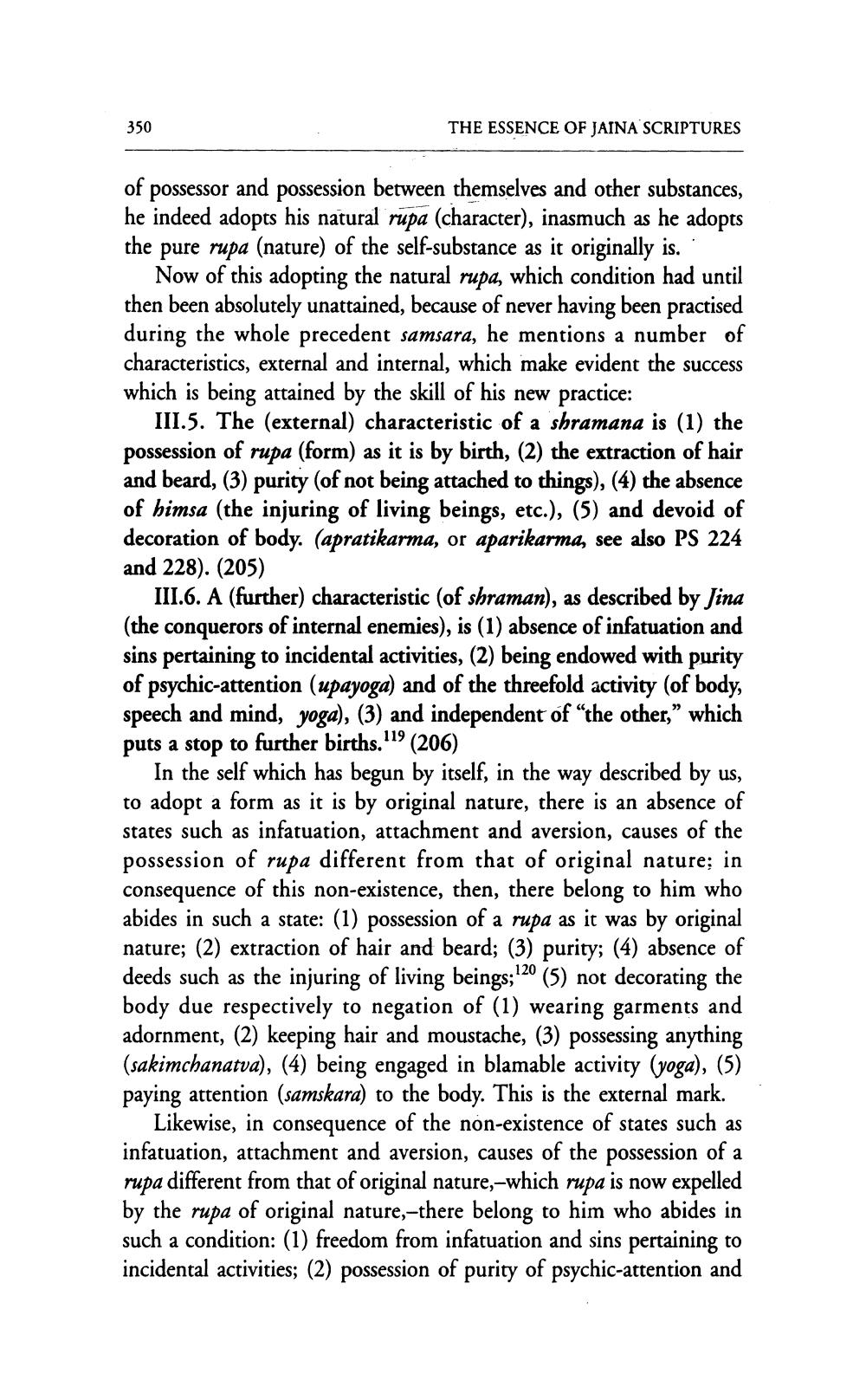________________
350
THE ESSENCE OF JAINA SCRIPTURES
of possessor and possession between themselves and other substances, he indeed adopts his natural rupa (character), inasmuch as he adopts the pure rupa (nature) of the self-substance as it originally is."
Now of this adopting the natural rupa, which condition had until then been absolutely unattained, because of never having been practised during the whole precedent samsara, he mentions a number of characteristics, external and internal, which make evident the success which is being attained by the skill of his new practice:
III.5. The (external) characteristic of a shramana is (1) the possession of rupa (form) as it is by birth, (2) the extraction of hair and beard, (3) purity (of not being attached to things), (4) the absence of himsa (the injuring of living beings, etc.), (5) and devoid of decoration of body. (apratikarma, or aparikarma, see also PS 224 and 228). (205)
III.6. A (further) characteristic (of shraman), as described by Jina (the conquerors of internal enemies), is (1) absence of infatuation and sins pertaining to incidental activities, (2) being endowed with purity of psychic-attention (upayoga) and of the threefold activity (of body, speech and mind, yoga), (3) and independent of “the other,” which puts a stop to further births." (206)
In the self which has begun by itself, in the way described by us, to adopt a form as it is by original nature, there is an absence of states such as infatuation, attachment and aversion, causes of the possession of rupa different from that of original nature; in consequence of this non-existence, then, there belong to him who abides in such a state: (1) possession of a rupa as it was by original nature; (2) extraction of hair and beard; (3) purity; (4) absence of deeds such as the injuring of living beings; 120 (5) not decorating the body due respectively to negation of (1) wearing garments and adornment, (2) keeping hair and moustache, (3) possessing anything (sakimchanatva), (4) being engaged in blamable activity (yoga), (5) paying attention (samskara) to the body. This is the external mark.
Likewise, in consequence of the non-existence of states such as infatuation, attachment and aversion, causes of the possession of a rupa different from that of original nature,-which rupa is now expelled by the rupa of original nature, there belong to him who abides in such a condition: (1) freedom from infatuation and sins pertaining to incidental activities; (2) possession of purity of psychic-attention and




